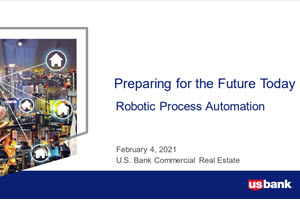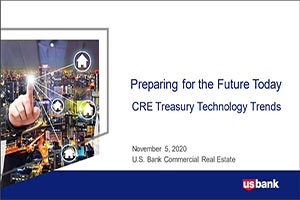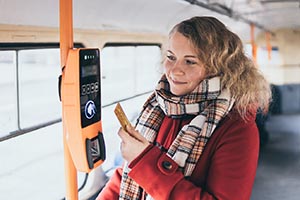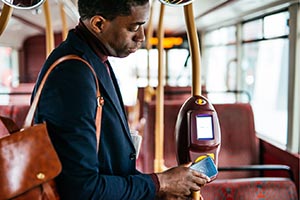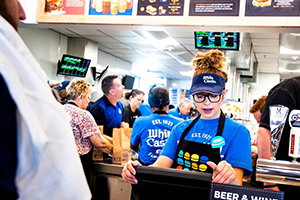The pandemic changed how people work, shop, and interact with service providers such as government agencies and healthcare organizations—it also changed how people move around.
With more opportunities for hybrid, gig, warehouse, and other non-traditional employment options, the public need for reliable, affordable mass transit options is shifting. While major metropolitan areas continue to see steady ridership, new trends such as suburban residential growth, manufacturing and distribution shifts away from urban areas, and a renewed focus on tourism are attracting diverse riders from new regions.
The transit map is expanding:
- 40.76% year-over-year increase in U.S. Mass transit usage
- 83.19% year-to-date rise in all commuter rail usage
Ridership is on the rise in mid-size areas:
- 64.86% year-to-date rise in light rail ridership in Denver, CO
- 86.55% Q2 rise in commuter rail usage in Nashville, TN
- 44.12% year-to-date bus ridership increase in Flagstaff, AZ
SOURCE: American Public Transportation Association
More ways to go everywhere
As smaller markets develop their infrastructure, they are incorporating new options that fit the needs of their community. Buses, light rail, subway, and commuter trains are still popular modes of commuter transportation. But non-traditional vehicles are gaining popularity as municipalities, and other operators seek efficient, cost-effective ways to get riders that last mile to their destinations. Streetcars, trams, monorails, and ferries cater to tourist and recreational destinations, while vanpool services and paratransit vehicle fleets are expanding to provide targeted transport for senior citizens, airport travelers, and people with disabilities.
Why payment transformation helps transit agencies of all sizes
By offering contactless and digital wallet options, transit agencies can offer these last mile transit options and satisfy a growing number of people who prefer tap-and-go payment options to cash or public transit smart cards.
For agencies, contactless payments drive cost savings by reducing labor associated with cash handling and issuing smart cards. It can also help optimize current cash flow and forecast future savings opportunities. Riders enjoy a more cost-effective experience through the flexibility and fare-capping strategies contactless payment options.
- It's safer for people and the planet
Contactless payment options speed up boarding, helping reduce pollution from vehicle idling. Streamlining operations also reduces face-to-face contact, a priority during the pandemic.
- Anticipate and solve stakeholder issues
Mass transit agencies deal with restrictive budgets, cumbersome bureaucracy, and change-adverse stakeholders. The right payments partner can help by projecting cost savings, creating scalable pilot programs and educating stakeholders.
- Bring every rider on board
Agencies also need to ensure that unbanked riders and people with disabilities have access to the transportation. A strategic partner can anticipate special use cases and create unique solutions that help get everyone where they need to go.
We've successfully partnered with transit agencies of all types and sizes to implement the right payment solutions for their community. To find out more about how mass transit is changing and why a contactless payment option would benefit your agency, contact us today.





